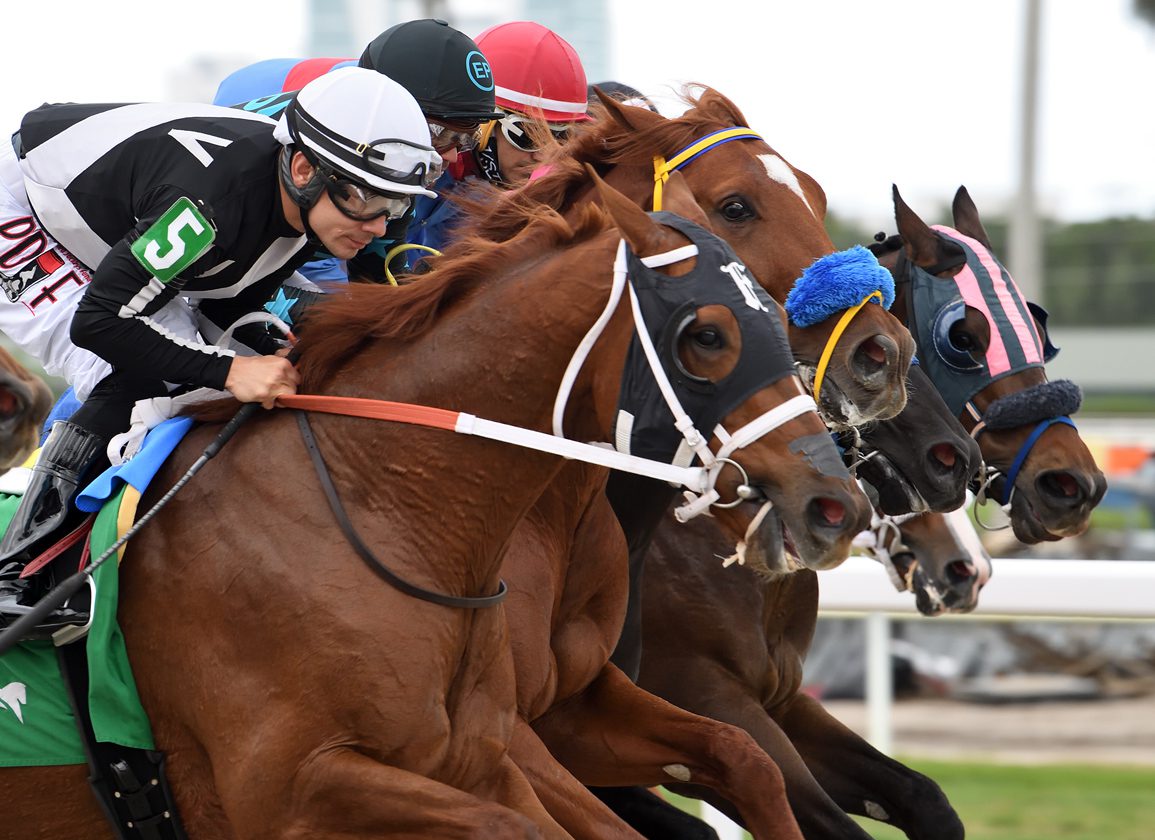By Dan Ross
The Horseracing Integrity and Welfare Unit (HIWU) has granted a temporary stay of enforcement to connections in six pending total carbon dioxide (TCO2) cases, all of which are out of Pennsylvania.
In total, 11 of the 14 pending and resolved TCO2-related cases reported since the advent of the Horseracing Integrity and Safety Act (HISA) have concerned horses that ran in Pennsylvania. Of the three other TCO2-related cases, one ran in California and two were out of Ohio.
When asked about the reason behind the temporary stay of enforcement, HIWU spokesperson Alexa Ravit wrote in an email that the agency continuously reviews all adverse analytical findings, “and is currently conducting a review of TCO2 analysis at the Pennsylvania Equine Toxicology and Research Laboratory (PETRL).”
The PETRL, affiliated with the University of Pennsylvania, analyzed all samples collected for TCO2 testing within the state.
Five of the 11 Pennsylvania-related cases concerned horses that ran at Penn National, five ran at Parx Racing, and one ran at Presque Isle Downs.
“We cannot comment on the details of the review at this time, but if anything is found that affects the outcomes of the pending cases, that will be made public when the cases are resolved,” Ravit added.
High total carbon dioxide (TCO2) levels could be an indication of bicarbonate loading–otherwise known as “milk-shaking”–which can neutralize the build-up of lactic acid in muscles, thereby helping the horse's performance. TCO2 is also naturally occurring in a horse's system.
According to HISA's rules, the alkalization or use or administration of an alkalizing agent is prohibited on race day, and a TCO2 blood threshold in excess of 37 millimoles per litre (mmol) is reportedly evidence of “international administration.”
Eight of the 14 cases have already been resolved. The trainer in each of the cases was issued a 30-day suspension and a $2,500 fine. This includes Salvador Naranjo, whose trainee Fever tested positive for TCO2 after running at Los Alamitos on Dec. 9 last year.
According to Ravit, HIWU issued a temporary stay in the enforcement of that case due to the, at the time, pending federal intra-articular injection rule changes.
“The affected Covered Person had penalty points from an intra-articular injection violation that were revoked (and the stay on the case lifted) upon implementation of the new HISA Racetrack Safety Program rules,” Ravit explained.
In Naranjo's case, the sample was analyzed by the Kenneth L. Maddy Equine Analytical Chemistry Laboratory at UC Davis.
Trainer Carlos Lopez was similarly issued a 30-day suspension and $2,500 fine due to two of his trainees testing positive for TCO2 after running at Belterra Park on Aug. 10 last year. Those samples were sent to the Ohio Department of Agriculture's Analytical Toxicology Laboratory.
According to Richard Hackerman, who represents one of the trainers with two pending TCO2 cases, he finds it “extraordinarily unlikely that there's a rash of milk-shaking going on in Pennsylvania and virtually nowhere else in the country.”
HIWU does not collect B samples when conducting TCO2 testing. However, trainers can request in advance the collection of a duplicate sample. In Pennsylvania, the duplicate samples go to PETRL, as per HISA's rules.
“The official Sample and any duplicate Sample shall be analyzed by the same Laboratory. If the Agency, in its discretion, determines that the duplicate Sample cannot be analyzed within 5 days after the Sample is collected, the findings of the official Sample shall be final,” the HISA rules state.
This is not the first time questions have been raised about testing procedures at laboratories contracted for use by HIWU.
At the end of last year, the TDN reported on testing uniformity difficulties arising from different testing equipment, testing methodologies and sets of staff interpreting the results between the then-six laboratories contracted for use by HIWU.
Internal reviews of the laboratories had uncovered different limits of detection in blood for the diabetes drug Metformin and for benzoylecgonine (BZE), a metabolite of cocaine.
In light of the review, HIWU explained that it had subsequently harmonized its “testing sensitivity” in blood across the six labs for these two substances, and that it would repeat the harmonization process for other drugs, including banned substances.
Earlier this year, HIWU severed its contract with the University of Kentucky's Equine Analytical Chemistry Laboratory due to questions raised about the lab's performance, and about “personnel” matters related to the former lab director, Scott Stanley. The Racing Medication and Testing Consortium (RMTC) also suspended its accreditation of the UK Lab.
Investigations into these matters at the UK Lab are still ongoing.
According to Ravit, there is no deadline for the stay to be lifted in the pending TCO2 cases while HIWU continues its review.
Not a subscriber? Click here to sign up for the daily PDF or alerts.






